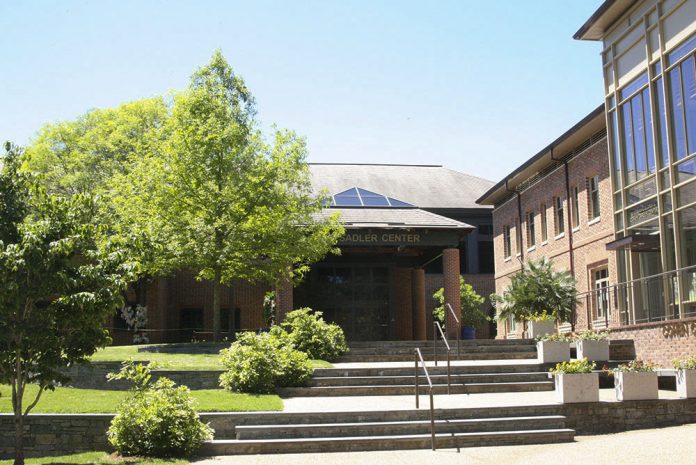April 3, four professors from different disciplines participated in a climate change roundtable hosted by the College of William and Mary’s Arts and Sciences Graduate Student Association. The discussion focused most on the issue of climate change denial, which inhibits environmental protection efforts throughout the United States.
Psychology professor Harvey Langholtz said that part of the problem in addressing climate change is the limited exposure to climate change that most individuals experience in their daily lives.
“We don’t want to deal with it, so we just deny it,” Langholtz said. “We can go … [to] Virginia Beach, everything’s fine.”
As a former New York resident, Langholtz said the ability to avoid confronting climate change could erode if another storm like Hurricane Sandy targets the East Coast. If a potential hurricane of that magnitude were to maintain a clockwise flow of winds and blow water into New York Harbor during high tide, the sea levels around Manhattan would be high enough to flood the borough’s subways and tunnels.
“This is going to be the first real visual representation that will be undeniable,” Langholtz said. “People will see this as a problem.”
Langholtz said concrete visualization is more important in influencing people’s perspectives about climate change than raw data, primarily because data lacks a gripping emotional pull.
“People in general don’t respond to data,” Langholtz said. “They don’t respond to what I’ll refer to as abstract information. You can give them numbers [and] it doesn’t sink in emotionally. It doesn’t get any traction. … In order for [the issue] to be gripping, they have to visualize, they have to see it. Without that, it’s going to be a tough sell.”
“You can give them numbers [and] it doesn’t sink in emotionally. It doesn’t get any traction. … In order for [the issue] to be gripping, they have to visualize, they have to see it. Without that, it’s going to be a tough sell.” Langholtz said.
Virginia Institute of Marine Science professor of marine science Kimberly Reece, who studies the expansion of the Gulf-based algae organism Alexandrium monilatum into the lower Chesapeake Bay, concurred with Langholtz about the importance of relevant visuals in informing people’s viewpoints on the importance of confronting global warming.
“When these shellfish growers were losing 60 to 70 percent of their animals during one of these blooms, it made a very big impression and they all showed up at the next meeting of the shellfish group to talk about what possible impacts there were of harmful algae blooms and were trying to sort this out,” Reece said.
According to biology professor Randolph Chambers, people often face a disconnect between observing specific events and linking them to climate destabilization.
“I remember when [Isabel came] in 2003 … I was like, ‘This is going to be so neat, we got all the food packed and ready to go,’ and then our basement started flooding,” Chambers said. “‘Crap, this is horrible.’ Having those experiences now, I don’t want them [again].”
Government and public policy professor Daniel Maliniak argued that one way the United States can fight climate change is through gasoline taxes and other similar policies. However, he emphasized that the federal government currently exercises bias in these policies, which is especially evident in comparing highly populated urban states that have access to alternative methods of transportation and low density, to more rural states that may not be as energy-dependent.
“Those people in Wyoming probably want lower gasoline taxes relative to the people in California,” Maliniak said. “So the fact that [Californians] get more say in places like the U.S. Senate means their voices are more likely to be heard [which] means that there’s a bias in the types of policy we’re getting.”
“Those people in Wyoming probably want lower gasoline taxes relative to the people in California,” Maliniak said. “So the fact that [Californians] get more say in places like the U.S. Senate means that there’s a bias in the types of policy we’re getting.”
He also noted that literature in his field suggests that not many people know the trappings of policy, which consequently affects how they take direction of people who they think do.
“They look to elites for one of two things, either shared interests, i.e., ‘Do these elites have similar beliefs as I do?’” Maliniak said. “Or, ‘Do they have some expertise, so they know more than I do? Both of those things can help me figure out what my position should be.’”
According to Maliniak, not only are people predisposed to follow their political leaders, but also are predisposed to think about the world within a certain framework. This poses challenges for addressing topics like climate change, when Americans may think of themselves as being on a political team and automatically defer their opinion on a policy matter to that political team when they have not examined the issue on their own accord.
Maliniak said that while experts can help people reach conclusions, people tend to listen more to experts when they view an idea or concept negatively.
“The problem is they listen to experts when they say [something is] a bad idea,” Maliniak said. “So if climate scientists came out and said, ‘We shouldn’t sign the Paris Agreement,’ lots of people would be like, ‘All right, I believe them.’”
“The problem is they listen to experts when they say [something is] a bad idea,” Maliniak said. “So if climate scientists came out and said, ‘We shouldn’t sign the Paris Agreement,’ lots of people would be like, ‘All right, I believe them.’”

